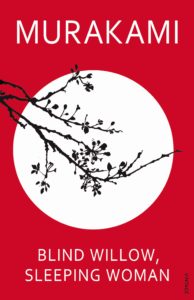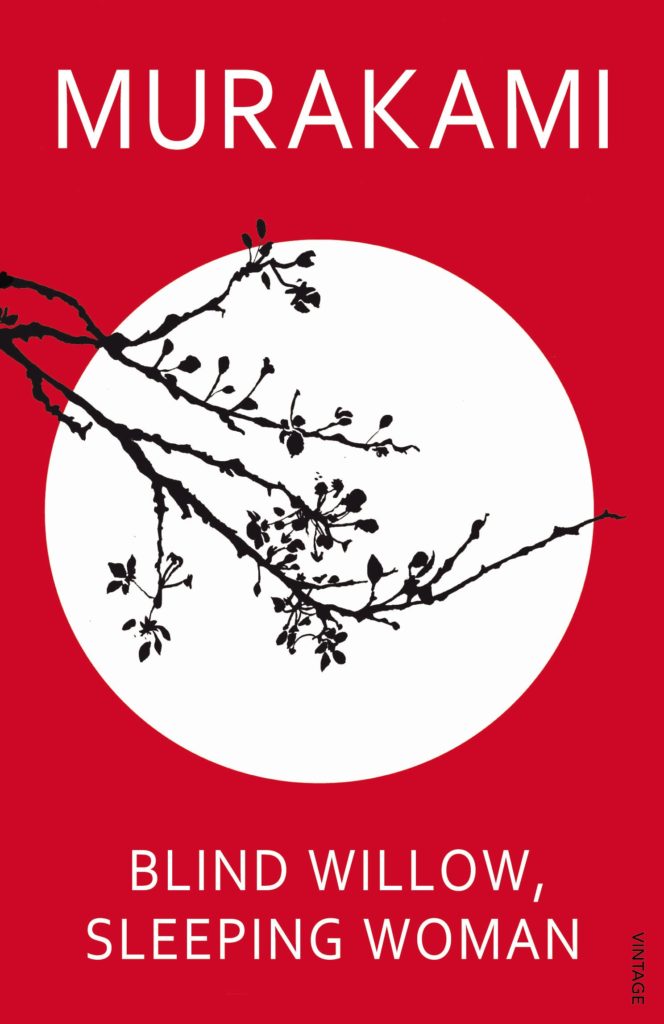

Support BOA by ordering Blind Willow, Sleeping Woman through these links:
Amazon U.S.
Apple Books U.S.
Amazon Japan
Thanks for helping support Books on Asia!

Blind Willow, Sleeping Woman (めくらやなぎと眠る女 Mekurayanagi to nemuru onna) is a collection of 24 short stories written between 1980 and 2005, and that had previously appeared in various Japanese magazines and collections.
Book first published in English in 2006 by Philip Gabriel and Jay Rubin.
Published in Japanese in 2009.
Note from the BOA Editor: As soon as I started reading Wind-Up Bird Chronicle, I had a dejavú moment: I think I’ve read this somewhere before! Was it originally one of Murakami’s short stories? Perhaps. I traced my hunch back to a short-story called “The Year of Spaghetti” that appeared in The New Yorker, Nov. 21, 2005 issue. In this story, Murakami declares 1971 the year of spaghetti and elaborates his passion for concocting spaghetti recipes born from his deep feeling of loneliness. “The Year of Spaghetti” plot also involves a phone call from a woman, but not the same prankster that calls him in Wind-Up Bird Chronicle. It turns out that, although there were seeds of the same ideas in both these Murakami writings, “The Year of Spaghetti” had not morphed into a chapter of The Wind-Up Bird Chronicle. They turned out to be two completely different stories, only loosely linked by a spaghetti strand of an idea. Which just goes to show that Murakami always keeps us guessing! “The Year of Spaghetti” was included, however, in his book of short-stories Blind Willow, Sleeping Woman.
“1971 was The Year of Spaghetti. I cooked spaghetti to live, and lived to cook spaghetti. Steam rising from the aluminum pot was my pride and joy. Tomato sauce bubbling up in the saucepan, my one great hope in life. Spring, summer and autumn I cooked away, as if cooking spaghetti were an act of revenge. Like a lonely, jilted girl throwing old love letters into the fireplace, I tossed one handful of spaghetti after another into the pot.”
This collection gives us insight into Murakami’s propensity to continue his short-stories into novel-length epics. “Firefly” was incorporated into Norwegian Wood and “Man-Eating Cats” was adopted into the story line of Sputnik Sweetheart.
As Murakami describes in the Introduction to the English Edition of Blind Willow, Sleeping Woman:
“There was a period when narratives I’d written as short stories, after I’d published them, kept expanding in my mind, developing into novels. A short story I’d written long ago would barge into my house in the middle of the night, shake me awake, and shout, “Hey, this is no time to be sleeping! You can’t forget about me, there’s still more to write!” Impelled by that voice, I’d find myself writing a novel.
This collection includes two of the first three short stories he ever published: “A ‘Poor Aunt’ Story” and “New York Mining Disaster.” Also included in this volume are “Birthday Girl,” “Airplane: Or, How He Talked to Himself as If Reciting Poetry,” “The Mirror,” “A Folklore for My Generation: A Pre-History of Late-Stage Capitalism,” “Hunting Knife,” “A Perfect Day for Kangaroos,” “Dabchick,” “Nausea 1979,” “The Seventh Man,” “The Year of Spaghetti,” “Tony Takitani,” “The Rise and Fall of Sharpie Cakes,” “The Ice Man,” “Crabs,” “Hanalei Bay,” “Where I’m Likely to Find It,” “The Kidney-Shaped Stone That Moves Every Day,” and “A Shinagawa Monkey.”
Cheapest: Amazon US Kindle $4.99
